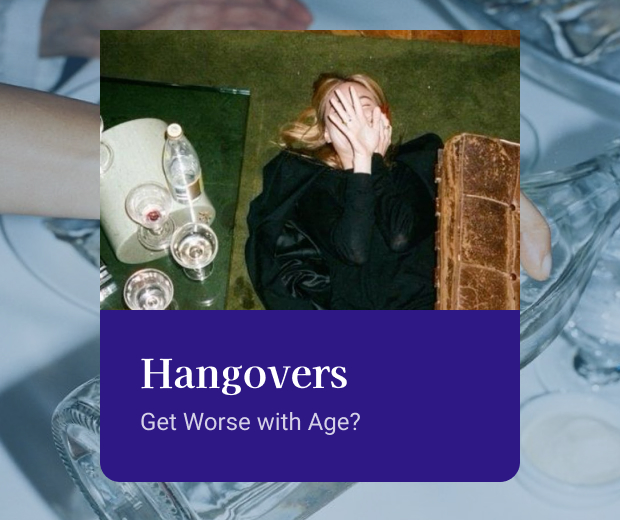
As you age, your body’s ability to process alcohol changes. For example, a slower metabolism, lower water content in your body, and decreased liver function can cause worse hangovers.
If you think your hangovers are more severe now that you’re older, you’re not alone. Many people report that their hangovers seem to get worse with age.
Little research exists on whether this is true and why, but a few issues might be at play. That said, many factors affect how bad a hangover is, including factors that have nothing to do with age.
What does the research say?
Research on hangovers and aging is somewhat limited, but some of it offers insights.
When you drink alcohol, your liver releases enzymes — particularly an enzyme called alcohol dehydrogenase (ADH) — that break down the alcohol molecules. Then, another enzyme called aldehyde dehydrogenase (ALDH) transforms acetaldehyde into acetate, a less toxic compound. Your body then breaks the acetate down to carbon dioxide and water.
As you age, your liver function might change. If your liver produces less ALDH, it can lead to acetaldehyde buildup, which leads to worse hangovers.
Also, older adults tend to have less water content in their bodies, which means alcohol becomes more concentrated in their bloodstream, leading to more severe effects.
Other reasons for experiencing worse hangovers as you age include:
Health conditions: Over time, you might develop health conditions that can compound a hangover’s effects.
Medication: As you age, you might start taking medication that makes you more sensitive to alcohol.
Infrequency: If you drink less often than when you were younger, you might perceive your hangovers to be worse because you’re simply not used to them.
What can you do to help reduce your risk of a hangover?
No fool-proof way to prevent a hangover exists other than not drinking. However, you can reduce your risk in a few ways.
Drink moderately: The most effective way to avoid a hangover is to drink in moderation. Stick to recommended guidelines — no more than one or two drinks a day.
Stay hydrated: Drink plenty of water before, during, and after drinking alcohol. Hydrating with water can help reduce dehydration and the severity of hangover symptoms.
Eat before drinking: Consuming food, particularly foods high in protein and healthy fats, can slow alcohol absorption into your bloodstream, helping reduce its effect.
Choose drinks wisely: Some drinks, like red wine and dark spirits, contain higher levels of congeners — chemicals that can worsen hangovers. Opt for clear spirits like vodka or gin, which generally have fewer congeners.
Pace yourself: Drinking slowly and spacing out your drinks with water can help your body process alcohol more effectively, reducing the likelihood of a hangover.
Get enough sleep: Since alcohol can interfere with your sleep, try to ensure you’re well rested before drinking. A good night’s sleep can help reduce the fatigue and brain health effects of a hangover.